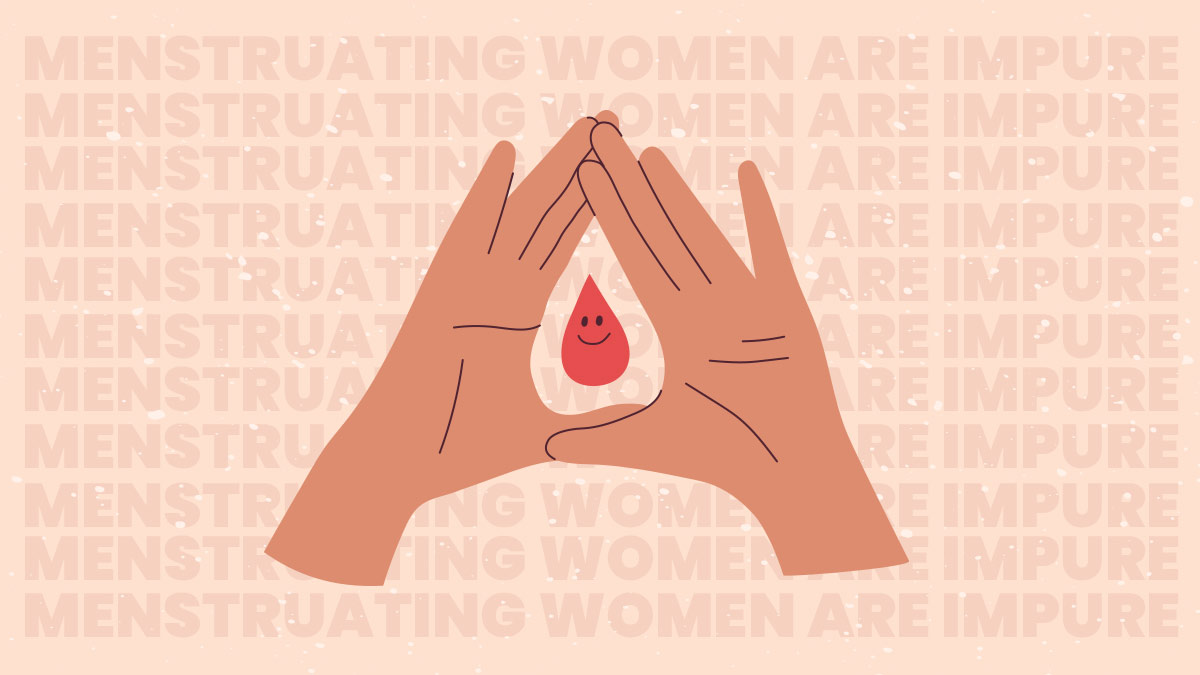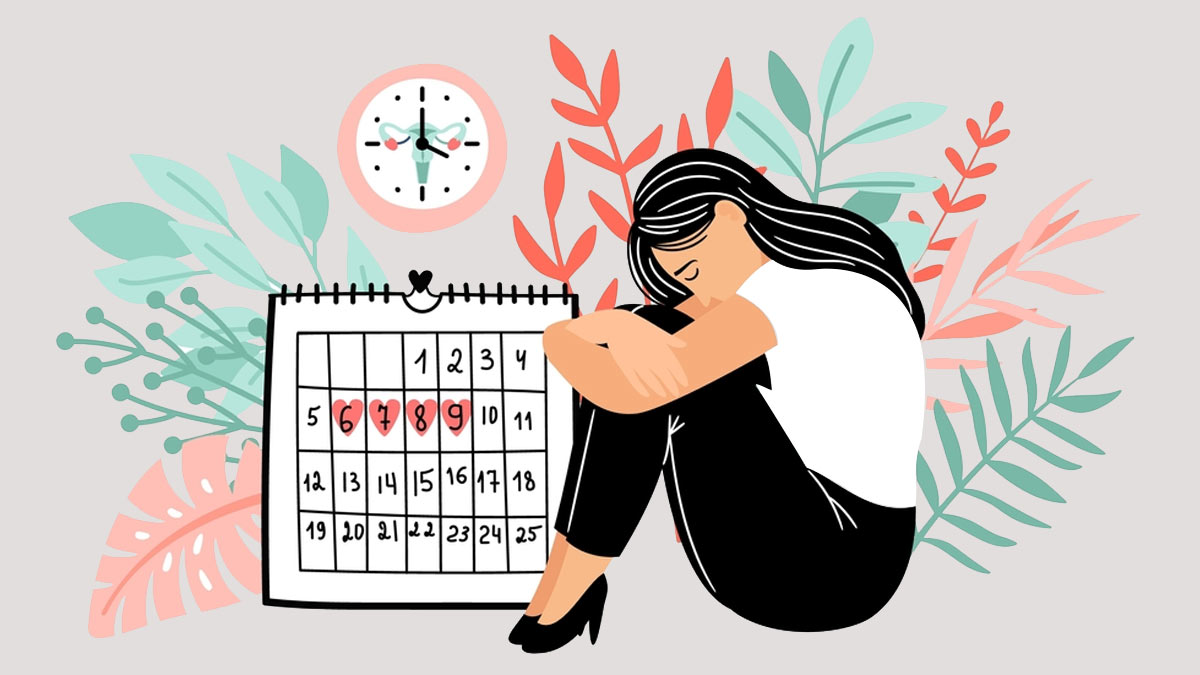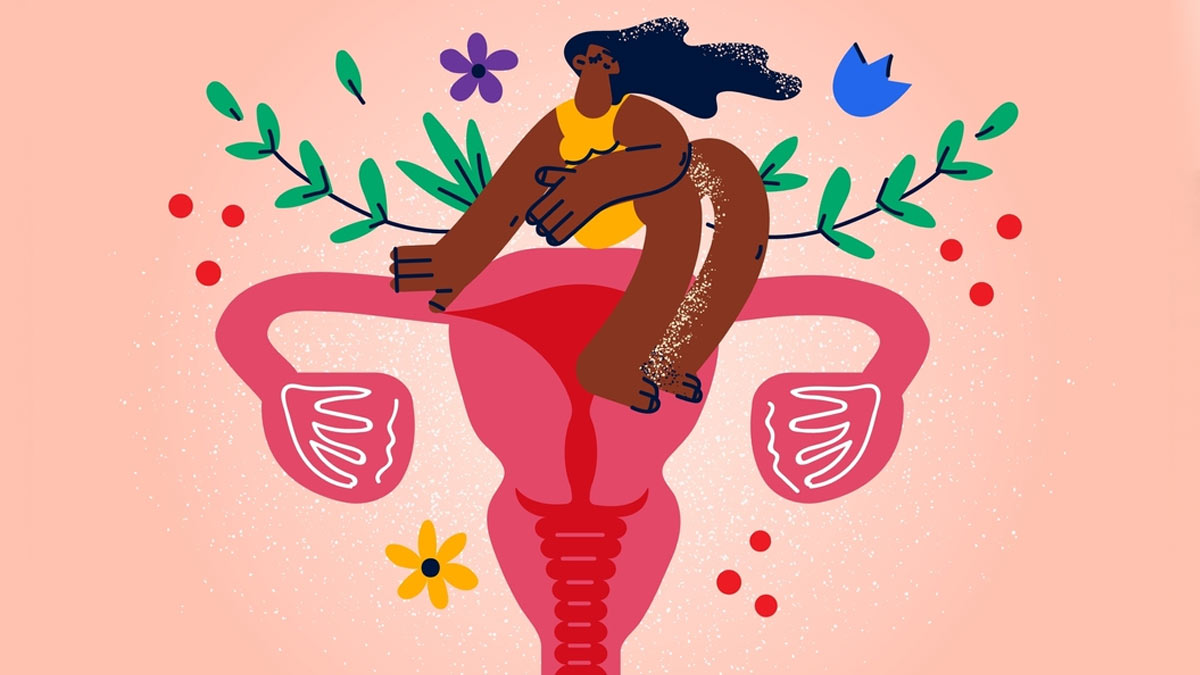
I remember having a bad day at school, the stomach ache was unbearable, and I felt painful muscle cramps in my thighs and back. I somehow managed to get to the bus. Almost an hour-long journey back home and I rushed to my mother. She instantly sensed it and handed me a sanitary pad from her almirah. Though she had earlier spoken to me about puberty, little was I prepared for menstruation. Physically, and emotionally, I went through a rollercoaster for the next four days. To help me cope with the menstrual cramps and mood swings, she fed me my favourite food and asked me to rest as much as I could. My mom told me it was normal and every girl went through it once she reaches puberty.
Over time, though I got used to the pain and other woes periods brought along, some things bothered me way more than menstruating. Often when I would take a sick leave from school and be at home during my periods, my grandmother would treat me oddly. She would ask me to stay away from the kitchen and stay cocooned in my room all day.
Once my grandma was performing her usual evening Tulsi aarti and she called out to my younger sibling to get her a matchbox from the temple. I saw him busy with his video game and rushed to help my grandmother. Following the incident, I was railed by her for stepping into the temple while menstruating. I burst into tears and was inconsolable. Later that day, my grandma came up to me and made me understand that menstruating women were 'impure' and shouldn't enter the temple or kitchen during that time of the month or would invite negative energies into the home.

For the longest time, I remember not stepping into a kitchen or temple consciously while menstruating. I would stay back at home while my family went for darshan. While my sibling would run after my mom into the kitchen to prepare Maggi, I would call her out from my room to give me a bowl too.
Don't Miss: Being A Brown Daughter: When I Was Asked To Ditch Outfits That Were 'Too Modern'
Years after assuming all the prohibitions were acceptable, there came days when I started to read about menstruation. I would have more evolved chats with my mother about periods. We would discuss why only women would menstruate, and why there was a stigma attached to this menstrual cycle which was otherwise labelled 'normal'. My grandmother and mother shared instances when they too underwent similar trauma while growing up. I realised things were even worse for them since there was a lack of menstrual hygiene. It only added to the pressure that menstrual taboos brought along.
Don't Miss:From Washing Your Hair To Exercising, Busting All Myths About Periods
Honestly, it took me long to realise that menstruation was nothing but a biological process. It was a regular discharge of blood and mucosal tissue from the uterus through the vagina that prepared a woman's body for pregnancy. The more I read about menstruation the more I felt bizarre because I understood women who didn't menstruate were incapable of conceiving a child. I wondered how did the impure debate around menstruation even spark when it gave women the power to give birth, pregnancy which is in every respect considered a boon.

Though it is difficult to get to the origin of how menstruation became a taboo I understand that the hush-hush around menstruation that has been here for ages now has only added fuel to the fire. The conversation around menstruation is still restricted and I believe that would continue if we don't speak up now.
The onus is now on us. If today, we don't chat about menstruation, not only will the minds of many young girls be scarred for life but many too will be left in the dark, at risk, not being aware of menstruation, menstrual hygiene, disposal, sanitation among other things. The easiest way to beat the stigma is to TALK, don't hold back, menstruation is part of our lives and it's time we embrace it!
Also watch this video
Herzindagi video
Our aim is to provide accurate, safe and expert verified information through our articles and social media handles. The remedies, advice and tips mentioned here are for general information only. Please consult your expert before trying any kind of health, beauty, life hacks or astrology related tips. For any feedback or complaint, contact us at compliant_gro@jagrannewmedia.com.